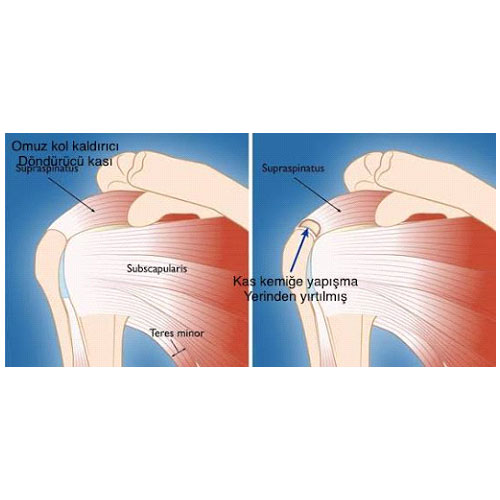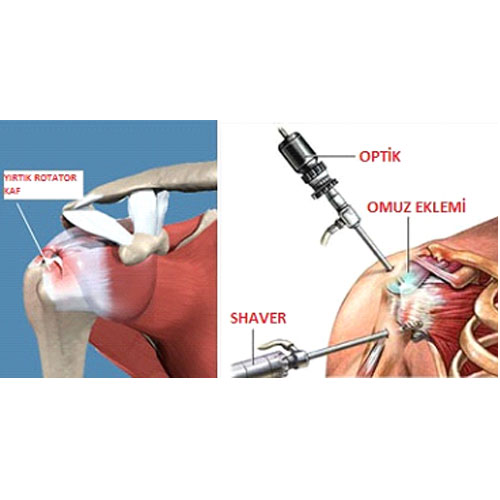The shoulder muscles are essential for the use of the arm and the stability of the joint. Tears in these muscles both prevent lifting the arm and cause the joint to lose stability over time, leading to the need for a more challenging treatment process.

It causes complaints such as shoulder pain and difficulty in lifting the arm. The diagnosis can be made with the examination and the tests requested afterwards. If the partial muscle tears in the shoulder are very small, relief can be provided with exercise, physical therapy and medication. However, no matter how small the muscle tears in the shoulder are, it should be kept in mind that surgery will most likely be required in the future.

Large partial muscle tears as well as full-thickness muscle tears require surgery if there are no other obstacles (a systemic disease that prevents surgery, general condition disorder, advanced age or functional disabilities). Early surgery will shorten the healing process. In delayed patients, muscle transfer may be required if the torn muscle loses its function. In very delayed cases, muscle tears can cause calcification in the joint.

Shoulder muscle tears are operated arthroscopically. Postoperative follow-up with bandage and exercise therapy is required. Although the postoperative process is a bit challenging, very successful results can be obtained with appropriate exercise and physical therapy. With a good treatment, it is not a dream to have the condition to do all sportive activities.



